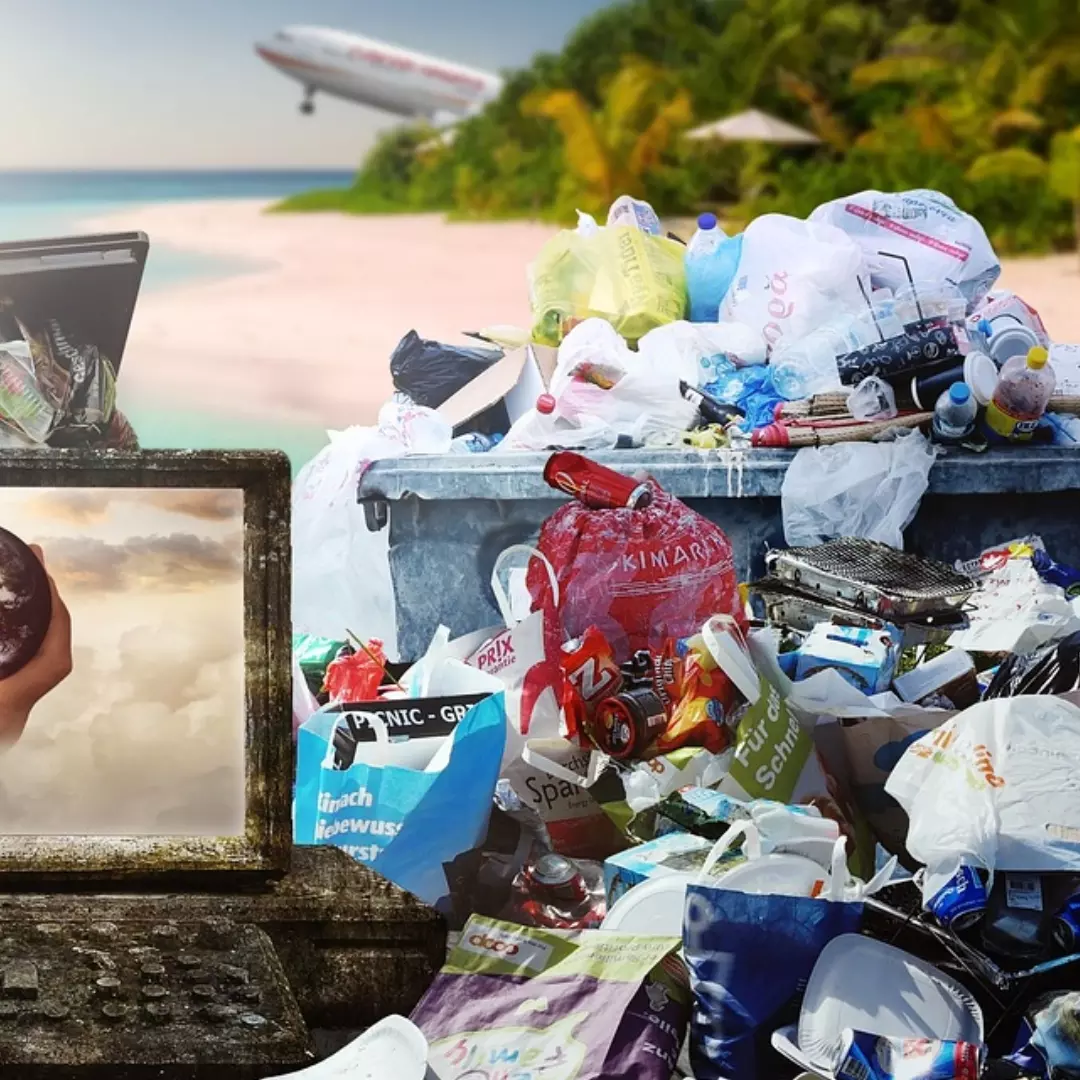
Image Credits: Pixabay (Representative)
Plastic Pollution Could Be Reduced By 80% By 2040, Says UN
Writer: Tanveer Singh Kapoor
He is pursuing my masters in journalism at Symbiosis Institute of Media and Communication, Pune and aspires to be a sports journalist.
Others/World, 18 May 2023 10:48 AM GMT | Updated 18 May 2023 10:50 AM GMT
Editor : Ankita Singh |
A literature lover who likes delving deeper into a wide range of societal issues and expresses her opinions about the same. Keeps looking for best-read recommendations while enjoying her coffee and tea.
Creatives : Ankita Singh
A literature lover who likes delving deeper into a wide range of societal issues and expresses her opinions about the same. Keeps looking for best-read recommendations while enjoying her coffee and tea.
The changes would bring billions of dollars worth of benefits between now and 2040, as stated by the report. The same would be achieved by reducing the damage caused by plastics to health, the environment, and the climate.
Global plastic pollution could be reduced by 80% by 2040, as per the United Nations Environment Programme (UNEP) report. The agency said the changes required are major but affordable and practical at the same time.
The first step is to remove unnecessary plastics like excessive packaging. The following steps are to increase the reuse of plastics, such as refillable bottles, replace plastics with greener alternatives, and boost recycling.
A shift like this would mean plastic pollution would drop to about 40 million tons in 2040 rather than 227 million tons if no action is taken.
The changes would bring billions of dollars worth of benefits between now and 2040, as stated by the report. The same would be achieved by reducing the damage caused by plastics to health, the environment, and the climate.
Plastic contaminates the entire planet in today's world. People consume microplastics via food and water and also breathe them in. Plastic particles have been found in people's blood and breast milk.
Recycling To Reduce Plastic Pollution
In March 2022, 193 countries agreed to eliminate plastic pollution, with negotiations on a legally binding agreement by 2024 now underway, hosted by UNEP. The second round of negotiations begins on May 29. Currently, the world produces 430 million tons of plastics annually, two-thirds of which are short-lived products that soon become waste.
The report said that the increased plastic reuse could reduce 30% of plastic pollution by 2040, with measures including deposit-return schemes for containers.
More recycling would bring down pollution in 2040 by a further 20%. Taxing virgin plastic and removing fossil fuel subsidies would encourage this by making recycling more economically attractive than producing new plastic.
Carefully replacing plastic products with alternative materials like paper or compostable materials could reduce another 17% in 2040, the report said.
The report suggests that combining cost savings from producing less plastic and increased revenue from selling recycled plastic would cut industry costs effectively. The investment required for the overall shift would be $65 billion a year, as indicated by the UNEP report covered by The Guardian.
Over the next two decades, it was estimated that cutting plastic pollution by 80% would prevent damage worth more than $3 trillion, including impacts on health, air pollution, climate, the ocean environment, and legal costs for cases brought against plastic companies.
Particularly, the 80% reduction would prevent 500 million tons of CO2 emissions a year, the report estimated. This could also result in a net increase of 700,000 jobs by 2040, mostly in low-income countries.
Also Read: Women In Nuclear Families More Prone To Diabetes Than Men, Reveals Study
 All section
All section













